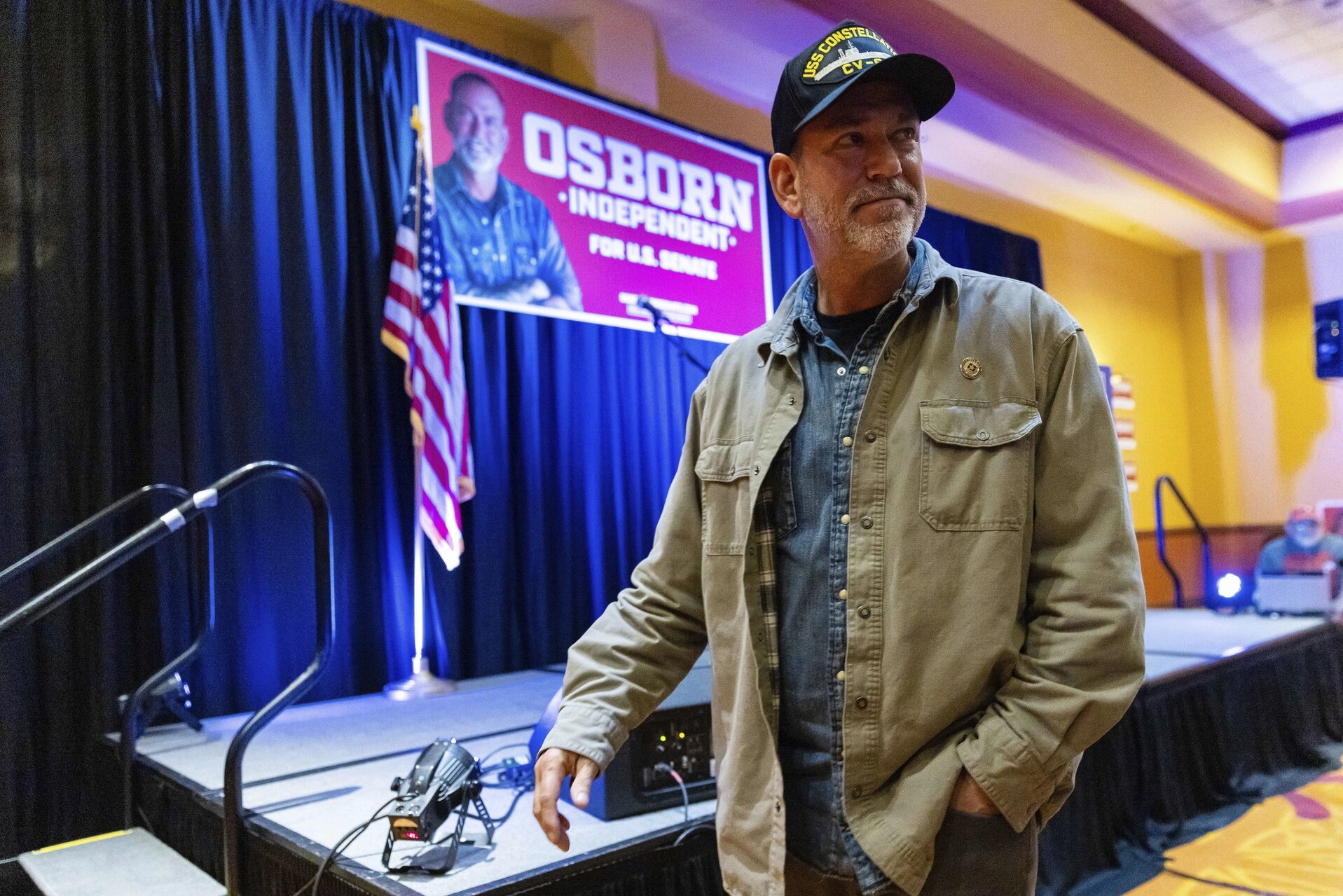“The Senate map doesn’t look great, but if there’s any hope of winning, we have to be aggressive,” said one consultant.

The leader of a Democratic donor network fielded excited calls Tuesday night from donors looking to help expand the party’s chances of winning seats in Texas and Florida. Progressive candidate recruitment group Run For Something saw spikes in sign-ups in the last 24 hours. And Senate Democrats are eying Ohio, Iowa and Alaska — states Trump won by double digits — as battlegrounds.
In the wake of Democrats’ resounding electoral wins this week, party candidates and strategists are strategizing how to expand their electoral opportunities in even the reddest of states in 2026, when President Donald Trump won’t be on the ballot and Republicans will face the traditional headwinds of a midterm cycle.
Before Democrats flipped at least 13 Virginia House of Delegate seats and won gubernatorial contests in New Jersey and Virginia by double-digit margins Tuesday, their chances to snag seats deep into Trump territory seemed out of reach
Now they’re feeling more bullish.
“The margins from last night reflect what we’ve been seeing on the ground here in Iowa, and my hope is that national observers will start to make the connection between the dots,” said state Sen. Zach Wahls, who’s running in the Iowa Senate primary for the open seat that Republicans are favored to win.
“There is real excitement and energy in the state,” Wahls added, “and fundamentally, we have to win Iowa in order to flip the Senate.”
Wahls said his campaign had its best fundraising day of the quarter after Tuesday’s elections.
Democratic National Committee Chair Ken Martin called the off-year success a “sign of a really systemic sea change,” adding, “[when] you see the swing with independent voters, it starts to give us even more opportunities.”
According to half a dozen donor advisers, granted anonymity to discuss private conversations, major donors are now “waking up” after holding onto their cash following Trump’s sweeping victory last year. Tory Gavito, who leads the progressive donor network Way To Win, said donors specifically asked about House seats in Texas and Florida, as well as the Texas Senate race, two red states that play an outsized role in GOP politics.
“There’s definitely a shift in energy among the donor class,” Gavito added. “The energy shift is going to translate into a surge in dollars.”
House Majority PAC, the flagship Democratic-aligned super PAC, said it is “expanding the map deeper into GOP territory” and name-checked a trio of seats in North Carolina, Michigan and Virginia that it plans to seriously contest for the first time in nearly a decade.
“Last night’s results are a clear sign to Chuck Edwards [of North Carolina], Rob Wittman [of Virginia] and Bill Huizenga [of Michigan] — start packing your bags because you will be voted out in 2026,” said CJ Warnke, a spokesperson for House Majority PAC.
There’s early evidence the Virginia results are nudging candidates into tough races. Former Democratic Rep. Elaine Luria, who lost in 2022, is expected to seek a rematch against Rep. Jen Kiggans, according to a person directly familiar with her thinking — though there’s already an active primary underway. Spanberger won the Virginia Beach-based district by just over a half a point Tuesday.
But for Democrats to win in red states like Iowa, Alaska and Ohio, they must dramatically improve their standing with working-class voters, a group that’s shifted from the party over the past decade.
Watch: The Conversation
SharePlay Video58:36
The Conversation election special 2025: Mikie Sherrill and James Blair
Other factors must also swing their way: In Alaska, Democrats are pinning their hopes on former Rep. Mary Peltola, who lost her at-large House seat by only 3 points in 2024. Peltola has, so far, declined to comment on whether she’ll run for Senate or governor. In Texas, Democratic operatives privately acknowledge their best chance is if Ken Paxton, the scandal-plagued attorney general, beats Sen. John Cornyn in the GOP primary.
Some Democrats are urging their party to back independent candidates, like Nebraska’s Dan Osborn, who is running against Republican Pete Ricketts for a Nebraska Senate seat.
“The Senate map doesn’t look great, but if there’s any hope of winning, we have to be aggressive and fight in places that are not traditional Democratic targets,” said Brendan McPhillips, a Democratic consultant based in Pennsylvania and working with a pro-Osborn group. “Some of this is backlash to Trump, but it’s also about candidate quality, who inspires people, people who fit their races.”
Senate Republicans pushed back on Democrats’ expansionist ambitions, arguing that “nothing would make Republicans happier than Democrats making strategy decisions in Iowa, Ohio and Nebraska based on takeaways from New York City electing an openly socialist Democrat,” said Joanna Rodriguez, the National Senatorial Campaign Committee’s communications director.
Republicans blamed their latest losses on poor candidate quality in a pair of blue states that aren’t predictive of a midterm cycle that will be fought in battleground states. Vice President JD Vance posted on X that he thought it was “idiotic to overreact to a couple of elections in blue states.” They also cast democratic socialist Zohran Mamdani, who won New York City’s mayoral race, as the central villain for Democrats in swing seats across the country. The National Republican Congressional Committee is already up with digital ads tying Democrats to the “socialist mayor.”
“National Democrats have their heads in the clouds if they think they have any shot of expanding the map that is quickly closing in on them because they’re forced to defend their leader Zohran Mamdani’s radical socialist agenda,” NRCC spokesperson Mike Marinella said in a statement.

But Democrats’ victories spanned the ideological spectrum, as Mamdani quoted socialist Eugene Debs in his victory speech, while Spanberger, who won by 14-points, made headlines in 2020 by urging her party “to not ever use the word ‘socialist’ or ‘socialism’ ever again.”
Rep. Chris Deluzio (D-Penn.) said that gulf captured the “big tent” of his party.
“The reality of how you win and who might win in Pennsylvania might look different than Virginia or New Jersey or California, and that’s okay,” Deluzio said. “I think we have got to be the party that is building out our appeal and attracting more people in, and again, that’s going to take some ideological diversity.”
All three focused relentlessly on affordability, which their strategists said they hoped Democrats would take as a lesson ahead of the 2026 midterms.
“Despite them being characterized as moderates, they do not have a base problem, and because they have that moderate brand, informed and driven by their security background – that’s the winning scenario for Democrats. We can keep the base happy and not be off-putting to less conservative Republicans and independents,” said Angie Kuefler, a Democratic pollster who worked on both Sherill and Spanberger’s gubernatorial races. “This is a winning formula [for 2026].”
